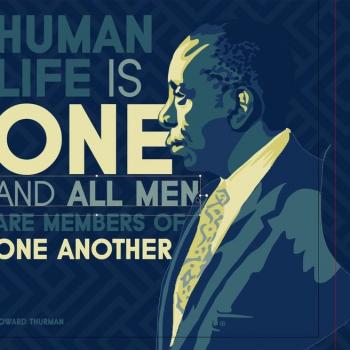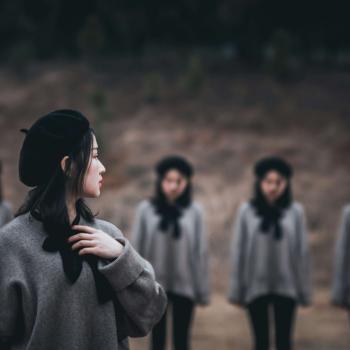Who are your favorite characters in the book?
Ahh...I love them all! But I suppose I have some favorites.
Jacob is a young assimilated Jew whose mother was killed in a terrorist bombing in Israel. To deal with his pain and loss he turns to Orthodox Judaism. Studying in a yeshiva in Israel he gets exposed to Jewish environmentalism, becomes committed to it, and then meets Ibrahim, a devout Muslim who is also an environmentalist. They become close friends and travel the Appalachian trail together, blogging at 'JewMuslimplanethope.org.' Then the terrible struggle in Gaza turns Ibrahim against Jacob. Abandoned by his friend, Jacob is lost in despair, feeling that no one else understands and will work with him, and his ability to fulfill God's plan for him to protect the earth is ruined. In the chapter on despair he must take a strange journey to a very dark place to find the courage he needs to continue.
Richard is a committed environmentalist who is in prison for blowing up bulldozers. When he gets out he wants to be a great organizer but can't control his temper when the people he's organizing don't agree with him. He prefers nature to people, who make him nervous. He's guilty because he eats meat and he feels like a failure all the time because he hasn't saved the earth. His heart is in the right place, big time, but he can't deal with the pain of the world or his own loneliness. While some of the characters who appear in more than one story reach a higher level of understanding and some wisdom about their lives, Richard doesn't. He's lost.
Then there is Charles, who was the executive of an Enron type company. He appears in the first story, in prison for white collar crime. He's ashamed of what he did, but remains a committed free market Republican type who hates Obama and thinks capitalism is the best possible system. Later we meet Benjamin, his son, in the stories about an environmental group (led by Richard) trying to resist a mall being built over a wetland. Benjamin is a quiet, focused, intense guy who is more or less a communist—not in the sense of supporting China or Cuba, but in believing that only a large scale, tightly organized party joining all the political causes (environmentalism, feminism, anti-racism, gay rights, poverty, animal rights, peace, etc.) can succeed in overthrowing capitalism. Well, after Charles gets out of prison, he and Benjamin have dinner in a fancy restaurant. Their conversation is, let's say, both predictable and unpredictable.
And Esther...she's the mother of a family about to have Thanksgiving dinner that gets into a very heated argument about animal rights. She listens to her two sons yelling at each other—one is a meat eating political radical who thinks we have to change all the institutions before anything good can happen; the other a dreamy new age type who feels the animals' pain and wouldn't touch a drumstick if he were starving. Esther hates to hear her kids fight, and wishes they could just admit how their beliefs are what they hold onto to get them through the night, deal with their confusions and the pain. She wishes they would just, well, listen to each other. She's an emergency room nurse and doesn't believe in anybody's great solution to the world's problems—she just does what she can to stop the bleeding.
There are lots more—the Mall Developer with the special needs child; a rabbi who helps a philosophy professor write a lecture at three in the morning; Lily, a poor little rich girl who never forgave her parents for cutting down her favorite tree; a prison guard on anti-depressants and the psychiatrist who treats him; a liberal minister who loses his family in an environmental accident; a psychotherapist who has magical powers...
To get to know them better I invite you to read the book.
"Tales of morality and meaning in an age of global warming" sounds pretty serious. Is there any humor in this book?
Life can be terribly painful, sad, even brutal—but it's also often pretty funny. You know, even in concentration camps in the Holocaust people told jokes—there are actually books which collect them. So in an age of global warming, as we face all sorts of terrible problems, we should still find a little humor. In this book there's a fair amount of it. Characters point out each other's silliness, make plays with words, and reveal some of life's touching absurdities. At times readers will be laughing at the characters, or laughing with them; and at times readers just might be laughing at themselves.
What's unique here? What would the reader find that she or he couldn't get from non-fiction books on environmental religion or environmental ethics?
Engaging Voices looks at many of the difficult questions discussed in environmental philosophy, religion, and politics: from whether nature has rights to whether eating meat is moral, from whether sustainability can exist in capitalism to the best environmental political strategy. But here the reader sees "real" people grappling with these questions. The reader also comes to know these characters as particular individuals who are angry at their parents, or were lonely as children, or feel called by God to serve the needy, or believe that Judaism and Islam should be committed to sustainability. The reader sees these people contradict themselves, find themselves unable to carry on in their environmental work after tragedies strike them, think to themselves that maybe they are wrong, or hold back their criticisms of others because they are afraid to hurt their feelings.




